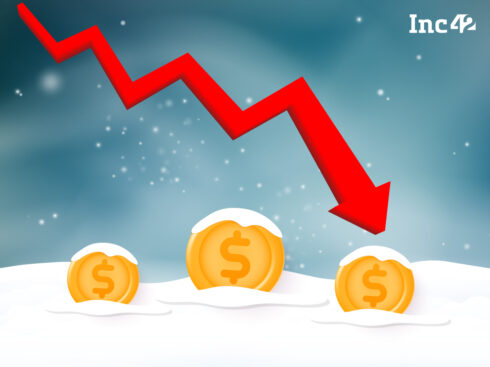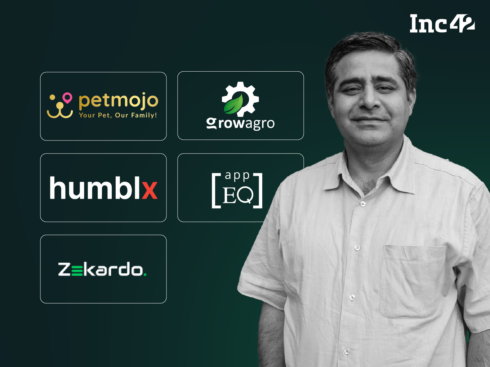
SUMMARY
A Pre-Revenue Startup Needs To Be More Than Full Of Unlimited Potential
One of the hardest things to do in the startup space is to estimate a fair valuation when investing in a company. This is even harder when it is a pre-revenue startup because there aren’t any tangible metrics we can use to assess the worth of the business.
The entrepreneur wants to be valued on the worth of his idea (which every founder believes is unique and earth-shattering) and the hard work he has put in so far. He wants you to fund him based on his future potential, which he feels is unlimited because he is so optimistic!
Many entrepreneurs want to be paid a market salary and feel their valuation should be on the basis of comparables i.e. on what other startups are raising. They forget that the media only reports the successful deals which are hardly representative of typical valuations because these are the outliers.
However, entrepreneurs of a pre-revenue startup will do well to consider the angel’s perspective. Angels have seen lots of clever ideas go up in smoke, which is why they are much more hard-nosed and realistic. They do not want to waste their limited funds in paying the founder a salary while he/she explores ideas when there is no evidence that these can be monetised – an investor would much rather the founder does his /her early stage experimentation on his/her own dime! He is worried that too much money ends up burning a hole in the founder’s pocket and he ends up spending it stupidly – “easy come, easy go.”
When there is cash in the bank, the founder ends up wasting money on marketing, adding unnecessary bells and whistles to his product; and employing a sales staff, rather than going out and hustling himself!
It’s important to find the right balance and I’d like to suggest an alternative which my firm Malpani Ventures is experimenting with, in Indian conditions.
The Funding Business Model To Support A Pre-Revenue Startup
It’s very easy for a pre-revenue company that has not yet proven product market fit, to burn a lot of money in trying to acquire customers and they often end up chasing the wrong customers and going down a rabbit hole. We don’t think that is the right way of building a successful company. You need to be frugal and you need to use intelligent hacks and hard work to find paying customers rather than throwing money at them because this only leads to disaster in the long run.
Rather than use the top-down model which the entrepreneur presents (based on spreadsheets which are full of unproven assumptions and a lot of hope), we prefer using a bottom-up model.
Our hypothesis is that it is possible to run a startup frugally for about Rs 4-6 lakhs per month in India. You can use a coworking space, and everyone takes only a basic minimum salary to keep the home fires burning. A cheque of INR 25-30 Lakhs gives you a runway of about 6-9 months, which we think is sufficient for you to find out whether your product can attract customers who are willing to pay for it. This means that with this initial funding, it’s possible for us to decide whether this is a company which we are willing to fund further or not.
Because it’s a pre-revenue company, we will give it a lower pre-money valuation but if the founder is able to meet the milestones (which he sets for himself), we will increase the valuation we give him for a future fund infusion after he has established credibility in the first six months. The valuation for the next round can be agreed up-front based on progress demonstrated.
We think this is a win-win at multiple levels.
It helps us because it allows us to fund more entrepreneurs with clever ideas, but which are hard to gauge as they are pre-revenue. However, we will not fund only PowerPoint presentations or business plans – we need to see evidence that you have bootstrapped yourself and demonstrated commitment on your own dime.
We think this is better for the founder as well. It opens the market for many more of them to raise financing which they earlier could not tap into; it forces them to be lean and mean, so that they are focussing on the product and getting real, paying customers without the hassle of getting distracted with trying to run around raising funds as we are willing to give them more money if they perform broadly as promised.
It also helps them to appreciate the value of the funds which the investor provides, so they are more willing to listen to an alternative perspective. This reduces our risk, as well, because it is easier to judge the character of the entrepreneur after a few months. It allows us to develop more trust in the founder over time, and back that trust with more money at a higher valuation as they have proven that they deserve it.
This incentivises the founder to perform better, as well, because this model allows him to increase his own valuation, based on his performance. This is purely in his control and minimises early dilution or the headaches of managing a plethora of small investors.
It also encourages them to report to us more frequently and spirited debate and an alternate perspective by an interested outsider can make a world of a difference in the early days of a startup because things can change so quickly. Our philosophy is that the investor and entrepreneur need to work together to build the startup, and this process takes time, so why take shortcuts and try to needlessly hurry it up?
One fear the founder of a pre-revenue startup may have is that that the investor may change his mind, even though he has met the promised milestones, and may refuse to issue the second cheque so that he is left high and dry. This can be managed via documentation. Entrepreneurs must do due diligence on investors by speaking with their investee companies. If you can’t trust the investor to honour his pledge, then you should look for someone else!
Does this model make sense? Is it fair to the founder of a pre-revenue startup? We hope to know in the future.
[This post by Dr. Aniruddha Malpani first appeared on LinkedIn and has been reproduced with permission.]


























